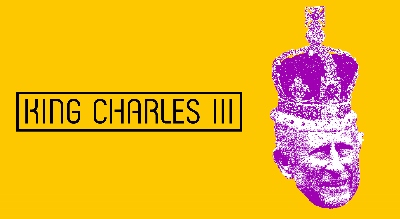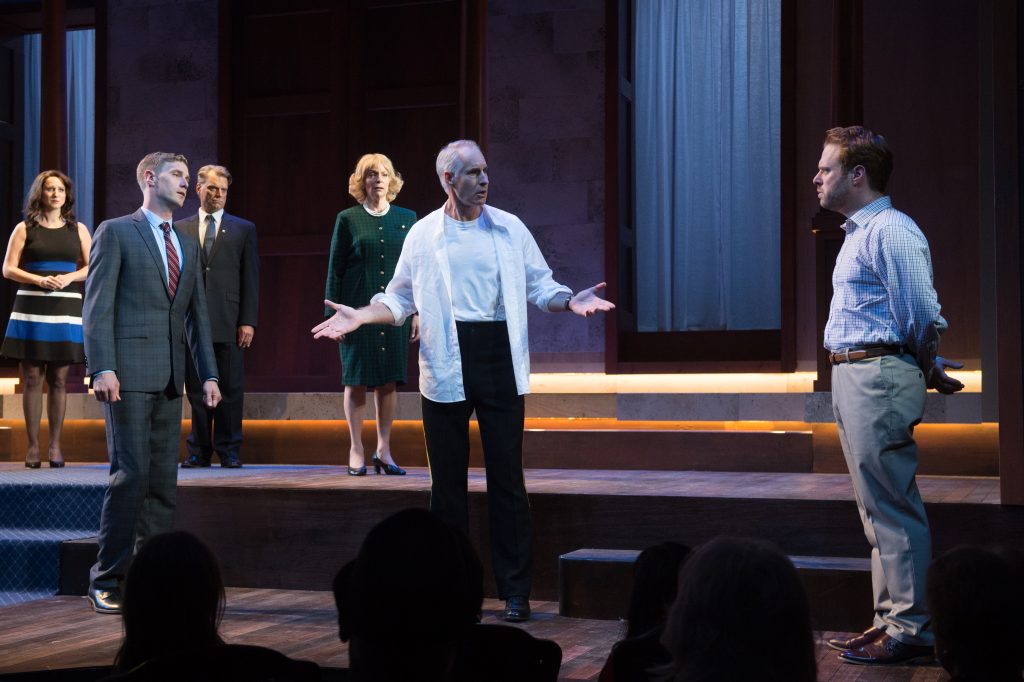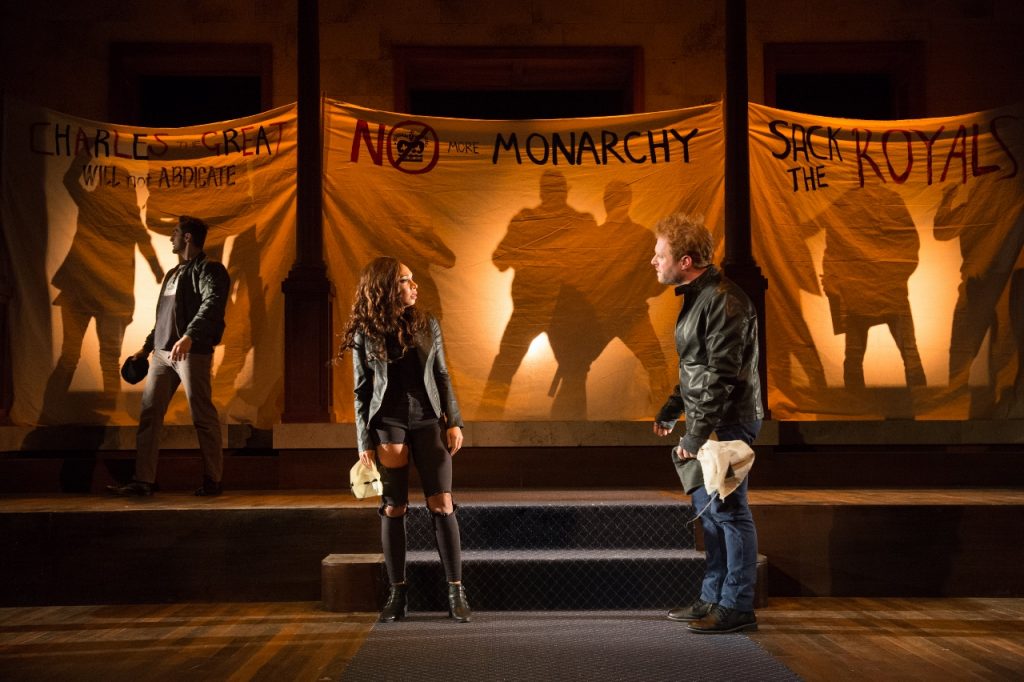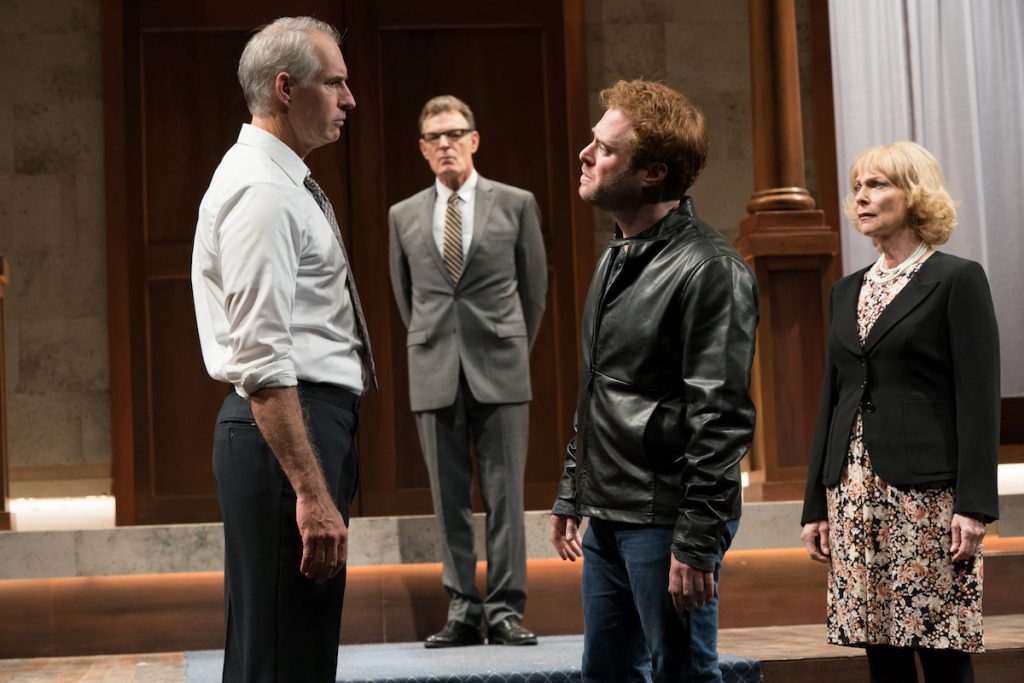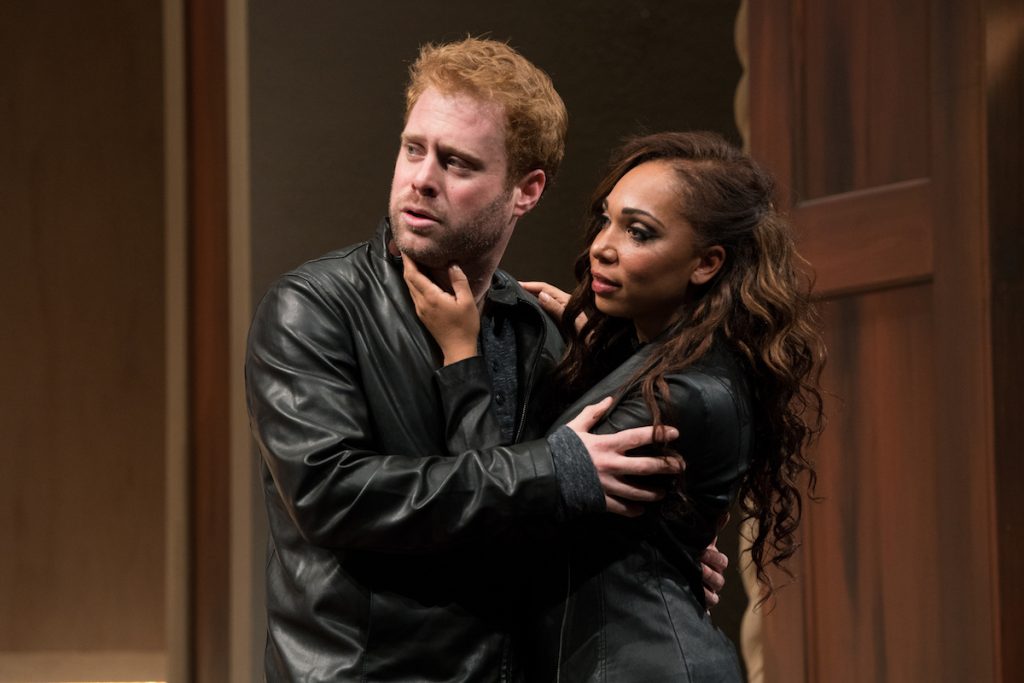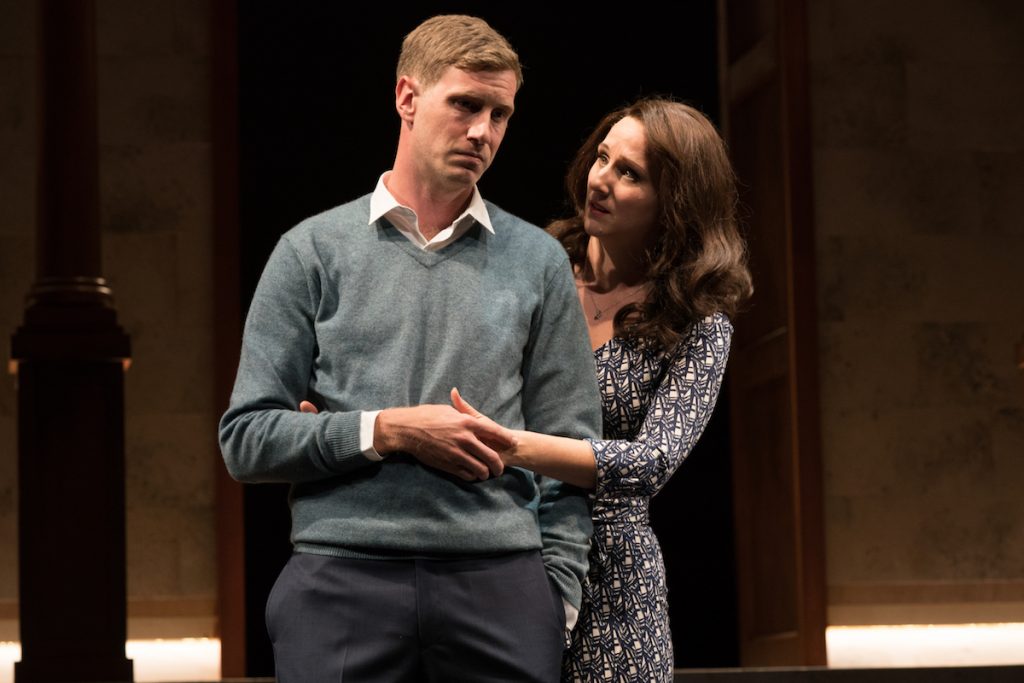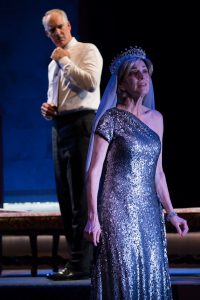WOMEN BEHAVING BADLY
In Mike Bartlett’s play about the imagined aftermath of Queen Elizabeth II’s death, men hold inherited titles, but women, both living and dead, hold the keys to power. Catherine, Duchess of Cambridge, the ghost of Lady Diana, Princess of Wales, and a fictional female Tory Leader of the Opposition orchestrate the events that lead Charles to an unthinkable act and provoke potential coups d’état. Charles is forced to grapple with the inescapable contradiction of a royal birthright existing in a 21st-century democracy. And the women triumph, literally and metaphysically.
Bartlett employs a modern cast of well-known characters and imagines their lives in the style of a Shakespearean tragedy in blank verse. The language and meter are mostly effective, sometimes thrilling, and always intelligent. Yet, in constructing the piece, the playwright is burdened by two elements with which Shakespeare never had to grapple: First of all, we know what these people look and sound like in real life, and, secondly, the current politics of the day in Britain (as well as the United States) are far more unbelievable and turbulent than anything he speculates about.
The central issue narratively is whether newly named (though not yet crowned) King Charles III will perform the hitherto proforma act of signing a bill he doesn’t like into law’”something English royalty has always done without comment in the modern era. He fears the bill would grossly limit freedom of the press. It is proposed by the Labour Prime Minister, and supported publicly (though not privately) by his opposition counterpart in the House of Commons. Perhaps the nonsensical nature of Labour proposing something that would be much more likely to be supported by the Conservatives in real life is Bartlett’s nod to Shakespeare’s haphazard attention to actual political events that were often centuries old by the time of the Elizabethan era.
Bartlett and director Michael Michetti consciously avoid any hint of impersonation of the Royals, and I can see the validity of that creative choice. From the muttering I heard from audience members during the act break, though, it’s a decision that doesn’t go over well. People were taken aback at how little anyone looked or sounded “right.” I don’t know that I disagree. Yet, perhaps paradoxically, for me the most powerful and successful performance is that of Jim Abele as Charles, and he looks, sounds, and moves nothing at all like the actual Prince of Wales. He makes the tragedy of Charles moving and believable.
What does not seem believable to me, is the idea that Charles would not have thought through every action he takes well before his mother’s death. In King Charles III, Charles constantly makes things up as he goes along, responding to bold, if random, ideas from virtual strangers. And while there is indeed a resonance and rich irony in a man whose life has been sometimes made into a misery by the tabloids seeking to protect the freedoms of the press, it is an issue that provokes little or no conflict for the audience. Of course we believe in a free press. And again, our present political and media environment is so extreme, that the treacheries and hypocrisies here are dwarfed by real life, never mind House of Cards’”the American or British version.
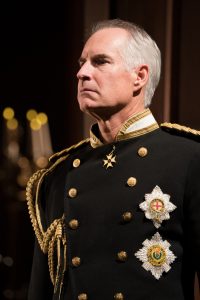 So, we are left with a treatise on the monarchy itself. Scheming family members are intent on preserving their privileges. The tragedy that falls is a personal one for Charles, yet in a larger sense, reads not as drama, but as common sense. There is some satisfaction at seeing the ghost of Diana having her revenge, but our own feelings about her, and our sympathies for Charles, have evolved since her untimely death. He is no longer the villain, and she is no longer the innocent victim. Dragging her into the story makes sense, but it also feels kind of cheap.
So, we are left with a treatise on the monarchy itself. Scheming family members are intent on preserving their privileges. The tragedy that falls is a personal one for Charles, yet in a larger sense, reads not as drama, but as common sense. There is some satisfaction at seeing the ghost of Diana having her revenge, but our own feelings about her, and our sympathies for Charles, have evolved since her untimely death. He is no longer the villain, and she is no longer the innocent victim. Dragging her into the story makes sense, but it also feels kind of cheap.
This production is well-staged and well-paced. The actors are excellent at handling the verse, if not the British accents. The Royals have a very specific speech pattern and cadence that largely eludes the cast, and the lower-class accents are particularly general, uneven, and unconvincing.
For some, the House of Windsor is an eternal fascination. For me, their existence underlines the essential contradictions of being human. I know that having a royal family ordained by God to rule over a country is inherently indefensible. And kind of ridiculous. But they’re pretty. And everyone says they’re good for tourism, right? Who doesn’t like a golden coach. God Save the Queen.
King Charles III
Pasadena Playhouse
39 S. El Molino Avenue in Pasadena
Tues-Friday at 8; Sat at 4 & 8; Sun at 2 & 7
(check schedule for variances)
ends on December 3, 2017
for tickets, call 626-356-7529
or visit Pasadena Playhouse
